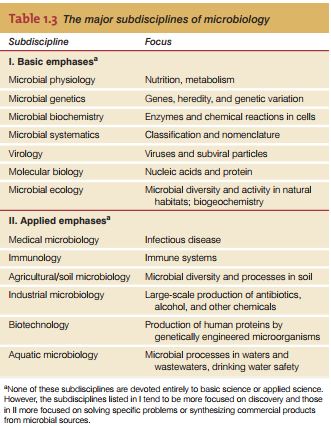Introduction to Microbiology
The term ‘Microbiology’ comes from the Greek word……
- mikros
= 'small'
-
bios
= 'life'
-
logia
= 'science'
Source: Brock Biology of Microorganisms, 13 ed.
It is so
tiny that you cannot able to see by your naked eyes. You must observe it under
the light microscope.
What are Microorganisms?
- Bacteria
- Archaea
- Protozoa
- Fungi including Molds and Yeast
- Algae
- Viruses(although viruses do not have an own metabolisms and are therefore no organisms)
Source: Brock Biology of Microorganisms, 13 ed.
Question:
What comes into your mind when thinking about microbiology?
Where can
microorganisms be found?
Microbes are everywhere. They are cosmopolitan. A huge unseen
world of living creatures that assist the life processes. Although we consider the smallest
forms of life is microorganisms, collectively they composed of the plenty
amount of biomass on Earth and carry out many essential chemical reactions for
higher organisms. Higher life forms would never have evolved and could not now
be sustained if the microorganisms were absent.
The following data of distribution of microorganisms in and
on earth are taken from the Brock Biology of Microorganisms, 13 ed.






No comments